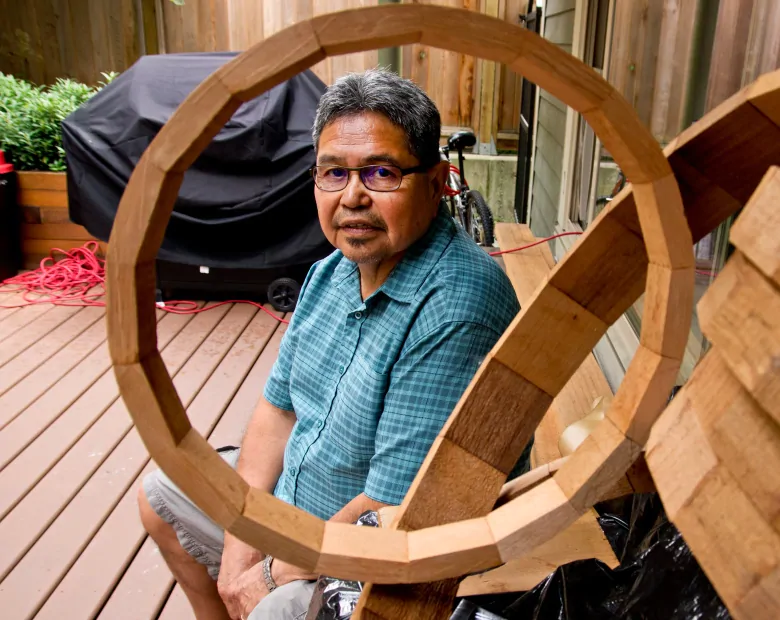'It's not just a song and dance:' father and daughter connect with roots for Nisga'a Nation's new year

Jerry Adams, an urban Nisga’a citizen living in Vancouver, B.C., didn’t start traditional singing and dancing until he was in his mid-sixties.
He’s one of the hundreds of people celebrating Hobiyee, the start of the Nisga’a new year, at the PNE Forum in Vancouver this weekend by performing traditional dances that he has practiced all year.
“Growing up in the ’50s and ’60s and ’70s you kind of didn’t have that spirit as Nisga’a, or any Indigenous person, back in those days because we were constantly being put down,” he said.
“Many of our people, back in those days, were afraid to be who we were.”

He grew up in the old village of Aiyansh in northwestern B.C. with his grandparents until his early teens, when he was sent to day school in Chilliwack and Kaslo. Away from his roots, he says he didn’t know enough about his culture to miss it.
He moved to Vancouver in 1978, got married and had three children.
Things started to change for Adams once he became a father.

“I had to start learning who I was as a Nisga’a man,” he told CBC’s Stephen Quinn, host of The Early Edition.
“That encouraged me to be who I was again.”

Four years ago, he joined a Nisga’a dance group with one of his adult daughters, Melissa.
“Seeing my daughter take the first step was really heartwarming for me,” he said.


Melissa started dancing with a local Nisga’a group in late 2015 and quickly encouraged her family to join as well.
“It’s not just a song and dance, we’re learning about our laws and our protocols and roles and relationships,” she said.
“It feels like you’re so much part of a community and you’re proud to be Nisga’a.”



